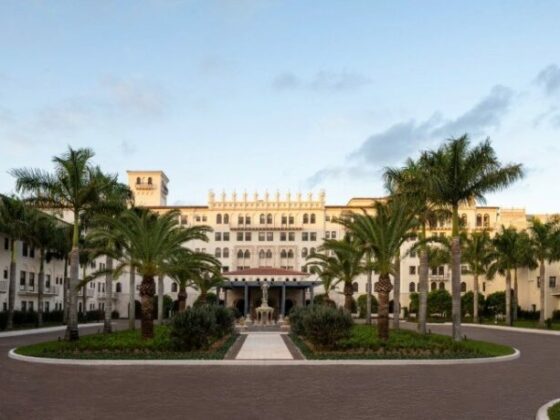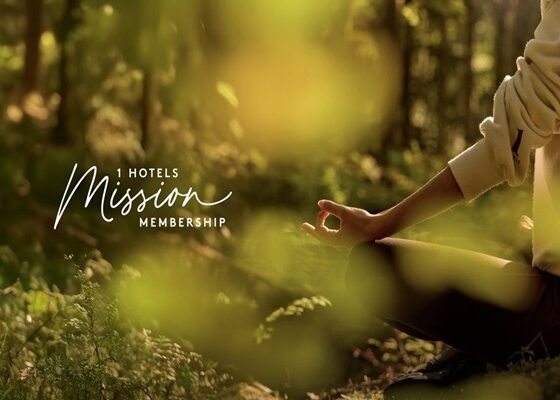Josiah: Humanitarian Hotels gives away 100% of its profits to charity. In this episode, you’ll learn why they do it, and maybe even more remarkably, how they do it, which, as I’ve experienced as a guest myself, is with world-class excellence. Joining us today to walk through it all is Chris Green, the organization’s president, who shares what it looks like when hospitality becomes an engine for generosity, and when doing good has no limits. Keep listening to not only be inspired by what they’re building, but also to discover new ways of pursuing what’s good with excellence. Let’s get into it.
[intro]Josiah: I’m so excited to speak with you, Chris, because I’ve really appreciated getting to know you more over the past year. You’ve been incredibly generous with your time in our conversations. I’ll speak on a personal level. The conversations we’ve had where you’ve showed me privately, the tapes have not been rolling, there’s been no one else benefited, but you’ve just invested your time in helping me understand more of the hotel business. So thank you for that. I appreciate your generosity also this morning to take the time to record. I’m very excited for you because last time we had you on the show, you were in a very different role. You were doing different things. I wonder if you could explain for our listeners a little bit more about your role today. And then we have a lot of things that we’ll get into. But tell us a little bit about your role today in the organization that you’re at.
Chris: Well, Josiah, thank you. You’re incredibly kind. It’s valuable to me to hear your feedback. That’s who I want to be in this world, is someone who gives back and leans into relationships and knowing other people and seeing people thrive. That’s just been who I’ve always been. So my new role is incredible. It aligns really with who I am as a person. So my new role is president of Humanitarian Hotels. I run three beautiful hotels for a Pulte family charitable foundation. The Pulte family was America’s largest home builders. And then when Mr. Pulte died, he endowed a foundation with a single goal of doing good in this world and providing for the homeless, caring for those in need, those that are hungry, providing shelter, just doing things that we should do as humans. And he happened to own three hotels and those got contributed to the foundation. And Kevin, who’s the COO of the foundation, Kevin Doyle reached out to me and said, hey, we’ve got these hotels. I’m not a professional hotelier. I see you’re retired now, Chris, and I would love to know if you’d want to join us. And the more I learned about the mission, the more I knew is exactly where I needed to be to be able to expand on what I’ve always believed as an operator and a hotelier.
Josiah: You are an incredibly generous person. I’ve gotten to see that firsthand more and more in just even the past months. This feels like a through line throughout your career. Last time we recorded, we touched on elements of this. This feels integral to who you are. So I’m so excited to see you in this role. Before we started recording, we were talking off air about how we’re recording this at a conference. Conferences are always about what’s next. Media conversations are always about what’s next. You told me something that really stood out to me and that is you’re in the pursuit of something else. What is that?
Chris: Well, we’re always looking forward and we’re always racing about what’s the next thing, what’s next in AI or especially in the hotels or in all industries, right? But I’ve realized as I’ve kind of settled into this role, I’m in pursuit of what’s good and what’s truly good. And I’m not measuring outcomes now by operating profit or RevPAR indexes. And of course we track those because we have a hotel to run. But I’m measuring them by outcomes for our associates, outcomes for our guests, outcomes for the charities that we support all around the world. Our foundation has supported 292 charities over the past five years to the tune of about $167 million. So we’re out there giving and making a difference in our world. So when I made this shift, Josiah, I had to really step back because people who know me, we’ve only known each other a year or so, but people who know me know I’ve always been in pursuit of great culture, what’s good for our associates, how do we make the industry a better place? But I always had to make some trade-offs. There was always a trade-off between profitability and culture or profitability and people, right? You were forced to just because of relationships and the business model. And in this role, I have none of those restrictions. So it’s a little disconcerting to me to kind of get my bearings. How does this work when you are only in pursuit of what’s best?
Josiah: That’s going to be such a fun place to operate from. And I think what you’re mentioning is important to touch on because yes, there are economic considerations, many hospitality organizations or businesses that need a financial outcome. You’re still managing to make sure that this entity is sustainable, but it’s coming from a different place. And I feel like there’s so many elements we could get into. I want to get into the structure and the properties, but I want to see it in this notion of what is good. And I guess what is a sort of North Star as you explore this? It feels like you’re heading into uncharted territory. What guides you in the pursuit of that?
Chris: I just have a belief that first, I’ve been in hospitality 30 plus years and I believe it’s just about genuine care and concern for others. That’s literally what hospitality is. And so innately we need to own that and drive that forward and make it real to people. There’s this quote I use, it doesn’t matter what I say if the employees don’t know it’s true. And what does that mean? Well, it can be a statement about, okay, we’re the best hotel company. Well, that’s one thing. But what about if I say we want the best for you? And what’s your personal outcome? What is Josiah’s best personal outcome? And then how do we enroll ourselves, making sure you see that? So what am I pursuing? I’m pursuing a place where, boy, I hate to say some of these things out loud, but we do employee satisfaction surveys in the business, right? And a good margin of success is 70 plus. People are, I feel valued here. What am I in pursuit of? A hundred percent. I want people to be like, these people know me. They know what my outcome is and they’re helping me pursue my outcome as an associate. And then for guests, we keep our hotels in incredibly excellent shape because we want to deliver excellence for them. And we share with them. We have equivalencies on our menus and on our wedding planning books and on our golf tournament books, where it says, you know, you booked this golf tournament for 144 players and you can build 10 houses in a foreign country for families. Or your glass of wine tonight in our restaurant will pay for food for a week for a family in need. We want the guests to be enrolled. They can be part of what we’re doing and do well.
Josiah: It feels like there’s this big mission that gets people excited and aligns people around, here’s what we’re here for. We were talking at dinner yesterday about this a little bit and how that motivates your team. And you’re able to, yes, be attentive to what is success for them, but also saying, hey, we’re collectively here to do something really special.
Chris: Yeah. We were very intentional and listen, we’ve got a long way to go because it’s still a business. Right. And part of my role is to make sure that the business performs exceptionally well. So we have more money to give away, which is a really interesting, I tell my friends here that are CEOs of other management companies. I talk about the hotels and then I get to that part and they’re all like, timeout. You give all the money away? And I’m like, yeah. All the money gets given away. So it’s super exciting. I mean, back to your question, just one of my goals is to let the associates know at a very deep level, how much their contributions make a difference. Because when it’s time to pass a check out to a homeless organization for $50,000, it’s not me. The executives don’t stand up there and give the check. We bring associates in to hand the check off and we enroll them in that. So they know what they’re doing.
Josiah: That’s so great. I wonder if you could rewind the clock a little bit and take me back to the first days, the first weeks where you step into this new role. It’s got to be so interesting. This is just unlike any other organization I’ve learned about. You’ve seen all different elements of hospitality. I’m curious, stepping into this new role, what were you looking for? What were some of those early conversations as you understand the organization and you’re planning around where you want to take it?
Chris: I’m a really transparent guy. So my early conversations were, I looked at, I went in and I did what I always do. I looked at the numbers for the assets and I was like, oh yeah, we can make an impact here. We can drive more bottom line. We can, these are certain things we can do. And of course we can do those things. But Kevin, who’s really great, he’s about 10 years younger than me and he’s just very smart. And he said to me, well, yes, Chris, but no. We want to make sure that maybe we can do more allowing our employees to, instead of cutting hours, let’s let them volunteer somewhere and pay them for going to volunteer, not just one day a year, but multiple days a year. Or let’s look at adding more benefits or let’s add bringing in financial training for them to learn how to retire comfortably. Let’s look at programs where instead of driving down the GOP, we drive up the satisfaction level of our staff and then ultimately our guests, right? And what we’re delivering to the marketplace. The funny thing, Josiah, is it’s not funny. It’s something that I always believed was true, but I’ve never experienced it completely. The ability to keep a hotel in near perfect shape, to do all the things you want to do for the associates, the ability to market the hotel in a way and also contribute to something good. I always knew that the outcome would be good, but the good news is our hotels do extremely well. And I think it’s lots of reasons. The associates are attached to it. The guests are attached to it. I mean, it just works and we keep the hotels beautiful. So everybody experiences excellence.
Josiah: I was telling you, but for the benefit of our listeners, I was in Mackinac Island last summer and I was staying in another hotel and looking at different options for dinner. I actually made the trek over to your Stonecliff property for dinner because it was exceptional. It had just gone through renovation. And I saw firsthand not only the quality of the property, but the service and genuine warmth of hospitality. And it struck me because sometimes people will look up and say, oh, I have Hospitality Daily. But it was booked under my wife’s name. Nobody knew. We show up last minute, just warmly created really special warm hospitality and stunning property. I will never forget the sun setting over the lake. Just really, really top quality and curious how you think about performing with excellence because sometimes it feels that organizations that are doing good sometimes lose the excellence piece. I’m curious what you’ve observed around how that has taken place so far, and also how you’re thinking about continuing to lead with excellence, because it feels like a key part of the story. The money giving away is cool, but I feel like having an excellent guest experience, even if I didn’t know the backstory, I would be like, this is the place I want to stay.
Chris: Well, I think that’s the trick to it. And it’s not a trick. It’s just that the Pulte family, I’m really blessed to work alongside and then Kevin, the COO, they just challenged me about we’ve got to be the best. And the reason we’ve got to be the best is our associates should have no barriers to success, right? If they need tools, if you need new vacuums, or if you need new supplies, or we need better uniforms that are more comfortable for them to perform in, all that has to be done. Or if we need a new ballroom, we just built a $40 million ballroom at the St. John’s Resort in Plymouth, Michigan, where we just held the LIV golf tournament, which, I mean, four years ago that was a sleepy, former Catholic seminary. It was operating as a hotel, but I mean, that’s what it used to be. And all of a sudden now it’s a world-class resort in the Midwest that hosts one of the largest golf tournaments in the U.S. for the LIV golf tournament. The expansion and growth, because we were doing things with excellence, has also allowed us to give a lot more money away. And that’s what the family is in pursuit of and the foundation’s in pursuit of. So when I think about it, again, it tests me, Josiah. I spent my whole life going, okay, how can we maybe save a little over here to drive a little over here. And I was good at it. I’m a good operator. That’s what I’m known for is good operations. I’m efficient, highly profitable.
Josiah: I see people stopping you in the hallways of this event and telling you that, so I know you’re not making this up.
Chris: I hear this. But how cool is it to be at my age, later in my career to be challenged with, I actually sent Kevin an email yesterday saying, Kevin, this is so challenging for me because it’s forcing me to think in ways I never thought before. At this point in my career, you should think you got it all kind of wired. And now I’m getting tested, which is so cool and tested for good. It’s not like, how do you make, the only reason I need to make more money is because we want to sponsor another program. That’s the only reason that motivates me.
Josiah: It’s so interesting. So you’re in this organization that has this culture of excellence. You want to push performance. You talk about giving the team tools to operate more effectively. I guess in which areas are you seeing opportunity? Are you curious about to take the organization to the next level?
Chris: We’re very fortunate that we have the ability to expand services. So what we’ve learned is that our mission and our mode of operation is resonating deeply with people. So we have the ability, so we’re going to be adding wellness components to all of this. So expanding services is what we’re really going to do. We renovated the golf course of St. John’s and then we get to LIV golf, right? We put in a new $40 million ballroom and now all of a sudden, we used to host 250 weddings. We’ll probably host 350 weddings next year at the St. John’s resort. We just are able to keep expanding the experience for people to enjoy it. And we want to really define ourselves as approachable luxury. So not luxury for luxury sake, but approachable where you feel comfortable and you feel known and seen. And I think it’s going to keep going because people get attached to it. They come in and they go, wow, this is a great hotel and a great golf course. Wait. All the money gets given away. It just confuses people. A lot of people don’t really buy it.
Josiah: Frankly, they just, a lot of people don’t really buy it. It feels too good to be true. But you’ve seen firsthand, this is not just you’re in the biz, you’re running the business and you see that’s what happens. I wonder if you could speak a little bit more to some of the impact you’re able to make. You talked about building homes. But your organization is making an impact in so many ways across organizations. What are some of the ones that are most special to you?
Chris: I mean, really, we have a really big affiliation with a lot of intellectual and developmental disabilities charities. It’s a passion of our president, Nancy Pulte-Rickard. So in South Florida, we’re building a home for individuals with developmental disabilities that are aging out of the state system. They’re going to be able to live on their own. It’s called Ideal Place and it’s a environment where they can go and live. And so that’s a $114 million project we’re doing that. But then we do that at the regular foundation. And then at the hotels, we partner with organizations to have people on staff all throughout the year that have developmental disabilities and work with our teams to grow, to help them have dignified employment. We had a whole team that came out and filled divots at the golf course for two weeks ahead. They loved it. And they were part of the golf preparation team before the LIV tournament. So we lean into that. We’re big on homeless. We’re big on assisting people transitioning into U.S. citizenship. So we actually have world-class housing. This is something you don’t know about Stonecliff. We built world-class housing. We have the best housing for our associates up on the island. It’s all brand new. We built it and we renovated the resort. Why? Because how are you going to have a world-class resort and then have not world-class accommodations for your associates? I mean, you can do it, and a lot of people do. Not us.
Josiah: Well, I know as a guest last year, I saw the warmth of hospitality. Are there other things that you do behind the scenes to help your associates, I guess, just operate from this place of experiencing some of these things? Tell us a little bit about the associate experience and how you’re thinking about cultivating that so they’re able to provide this level of hospitality.
Chris: I mean, it goes back to what’s good and what’s right and genuine care and concern. So I actually had a call this morning about our health benefit plans. And one of our hotels has a special health benefit plan that about 20 associates use because of certain doctors or certain things. And we really would be more efficient to consolidate the health plans and only have certain plans. But we don’t come at it from that angle. Well, these are 20 associates need that. So is it more paperwork for us? Is it more of a hassle to manage? Is it more complex to have these multiple competing plans? It is. Guess what? That’s what’s good is for them to be taken care of. So it’s just these minute things where we don’t just immediately go, what’s the efficient or what’s the most profitable. We actually don’t start there. We start with what’s best and go, how do we make it work? And I will tell you, I love working, I said I worked with Kevin, but that’s where Kevin comes from. I will go back to hotel operator mode and I’ll be like, well, this is what normally we would do. He goes, yeah, but what’s the best for the associates or what’s the best for the hotels or what’s the best possible outcome instead of building. I can’t tell you how many times I’ve said, well, we could do this to repair this problem. He goes, yeah, but is that really a hundred year thinking? And I’m like, wow, Kevin, you’re making my head hurt. Right? But I love it. I love it. And there’s a lot to be learned. I know there’s a lot of hoteliers that listen to this and of course not everybody’s going to give all their money away. But I can tell you that thinking like this doesn’t cost you anything.
Josiah: I love that. I want to just go back to this notion of thinking about what’s good, what can excellence look like. It’s fascinating for me because I think our listeners can all benefit from this. From what you’ve shared, it’s listening to your associates, it’s listening to your guests, you’re thinking about what is possible. At the same time, I imagine you’re also looking for inspiration around what could we do if we’re thinking with a hundred year horizon or thinking about excellence in this area? What are some recent things that have inspired you maybe in other industries or other organizations that you’re looking at and saying, I wonder what this could look like in this organization?
Chris: It’s a really great question. I would tell you that the biggest thing is turning a lens of partnership and just generosity on every relationship, because I don’t think, we have a unique situation because when I go to a vendor and I say, hey, would you partner with us on t-shirts? Then they know we’re giving all of our profit away. So it’s not, I couldn’t do that at maybe some of my past jobs. They’d be like, why do you want free t-shirts, Chris? Right. But what I’ve learned is people really get excited about the generosity component and the spirit that we’re doing. I can’t tell you this week, how many people have said, this touches my heart, what you’re doing. And I’m like, it touches mine too. I mean, I don’t know how I got the job. Right. I’ve had several people going, hey, are you guys, I’ve had people go, hey, are you hiring? I’m like, so, but it’s just organizations that inspire me are ones that think without limits. And I’m trying to think of some that I’ve just recently seen, but just examples are, Josiah, I think I’ve told you before, I used to challenge my team and now I think about it in a different way, but what’s over the horizon. If anything were possible, what would you do? And so some of the things that I think about are, I said them earlier, man, I would love to have individualized plans for each individual team member for them to pursue their career goals, their personal goals, fitness goals, investing goals. I mean, why can’t we pay to have people come train them how to invest their 401ks? We can do so much more to impact people’s lives. And maybe that’s not what’s important. Maybe what’s important is we help them navigate college applications for their kids. Or we hire people that help them access to tutoring or what’s their, what is their important? What is their good? Because we always service what’s our good, unfortunately. And I think that’s human nature is we kind of determine it. And it’s a real risk, especially when you get to a CEO job, because we kind of think we know what’s the best outcome is and I think we get tone deaf sometimes and that’s a scary place to sit. It is.
Josiah: What you’re describing gives me very excited and also it feels like it gives me hope not only for this industry but for what the world can look like. If you’re open to it I would love to kind of circle back to the foundation for a moment and talk about this because I’m very interested, one of the benefits of the diverse listenership to this show is that there might be a couple ultra high net worth individuals that are listening that are thinking about, how do I steward my resources in a way that is going to really benefit the world? You can give money away, this model that you are a part of that you’re building is fascinating to me because it feels like you’re building this engine that can perpetuate good on so many levels. I’m trying to think about how to frame this as a question, but I just love your just broad thoughts around how do you think about hospitality as generosity and an engine for generosity? I feel like nobody talks about this, mostly because there’s not a lot of organizations.
Chris: We’re a comp set of one right now at this time. I’d love to be a comp set of hundreds, because how cool would that be for people to see?
Josiah: Do you think there’s something there? Do you think there’s something about, I think, hospitality as a generosity engine of some sort? I think that’s out there, and I think it’s coming. Okay.
Chris: I can see a place in a time where restaurants are doing it. You asked about super high net worth people or people that have just done very well, maybe have a legacy asset in their family and it means something to them. There is a system, we actually have a system where you can contribute an asset to the foundation and it could be the Josiah Mackenzie hotel. You contribute it and you get certain tax breaks that go along with that contribution. But that asset then will produce and give away all its money for the rest of its life. Something you could be proud of in perpetuity and know that it would be cared for and stewarded well. That would be always the mission of an asset that you or your family had built. So I’m sure I would encourage that if there’s people out there listening that say, hey, I’ve got some, it’s a weird device. Hey, give me your hotel. It’s not the normal development pitch, but it’s a powerful one. And it’s something that people can be proud of.
Josiah: If I think about a typical foundation model, I mean, you can build the resources investing across asset classes, but what we’ve talked about in terms of how you’re generating that has so many benefits. So you’re not just putting it in the stock market or in private investments. And it’s kind of unclear of what is the social good of that income generation or kind of growing the principle there. But in the way these hotels are run, in terms of the impact on associates, on guests, it just feels good at every level of the engine, which is fascinating to me.
Chris: It really is. There’s no doubt that a large foundation could put money with a PE firm or an investment firm and make a decent return and give that money away. But to your point, what investments were made that generated that return that they gave the money away, right? So we know where our investment is. We know what it’s doing for our associates, for our local marketplaces, where we’re heavily involved in our local marketplaces, and then the greater good, and we can direct it. And I would say the returns are similar to a good investment, but you can’t quantify the impact that you’re having by letting people know the story. We had 18,000 people or somewhere in that range. I don’t have the exact numbers on Sunday at our hotel for the LIV Golf Championships. We had a concert for over 10,000 people with Imagine Dragons. And the whole time I’m standing there watching this happen, and I’m thinking, all these people are part of something and they don’t know yet. All these people are part of something huge that’s going to go to affect our world. And we need to make sure that they know that. Who doesn’t want to do something good? You’re going to go stay at a hotel anyways. You’re going to go play golf anyways. You’re going to have a great dinner at a steakhouse. Do something good with the money. We’ll do it. We’d love to help you.
Josiah: I love that. I hope to record with you again, Chris, because there’s so many elements of this. I know you’re a busy guy though, but I think to wrap, I wonder if we could talk a little bit about, as you think about partners, as you think about working with other entities, other people out there. I’m curious, I imagine, I’ll include a link to your website. I’m sure everyone wants to work for you now in your organization. Are there partners? Are there kind of just people across the ecosystem that you have heard the story? You mentioned people can donate assets to the organization. How can we have a call to action for people who love this to participate?
Chris: Well, I mean, we’re thinking outside the box. We’re talking about partnering with a major shoe company for shoes for our organization, right? Where they’re involved. And you can almost sponsor the team by being part and being part of our mission, right? Because anything we can do to reduce costs that increases the outflows, right? So if people are aligned or engaged in our mission and they want to line up with us, they can reach out to me. I would love to talk to organizations that are like-minded, that want to impact our world. It can be, we have some things where we do with our food service vendors to make sure that they know that and they donate and help us get food for the homeless shelters we support in the Detroit metro area. So it’s really endless. I think about our golf course, right? We’re going to have all these golf events. So should we partner with a major apparel company to outfit our team and that they’re our partner in doing good in the world? It’s limitless what could happen. Transportation partners, partners that do AV to help us drive event revenue. I mean, there’s just a million things that we could do. And so I’m open to it all. And I thank you for putting, I didn’t come here to do that, but thank you for putting it out there, right?
Josiah: You’re doing something special here. You’re doing something special. And I’ll include links in the show notes to not only your website, but also some other conversations, great conversations with Glenn Haussman around this, some other media coverage that I want people to check out. I want people to really educate themselves on this. And also think about how can they bring this into their context of where they might currently find themselves. I think you provided a lot of great advice. But I think this way of thinking, the world will be a better place, hospitality will be a better place when people start to think this way of what does good look like.









